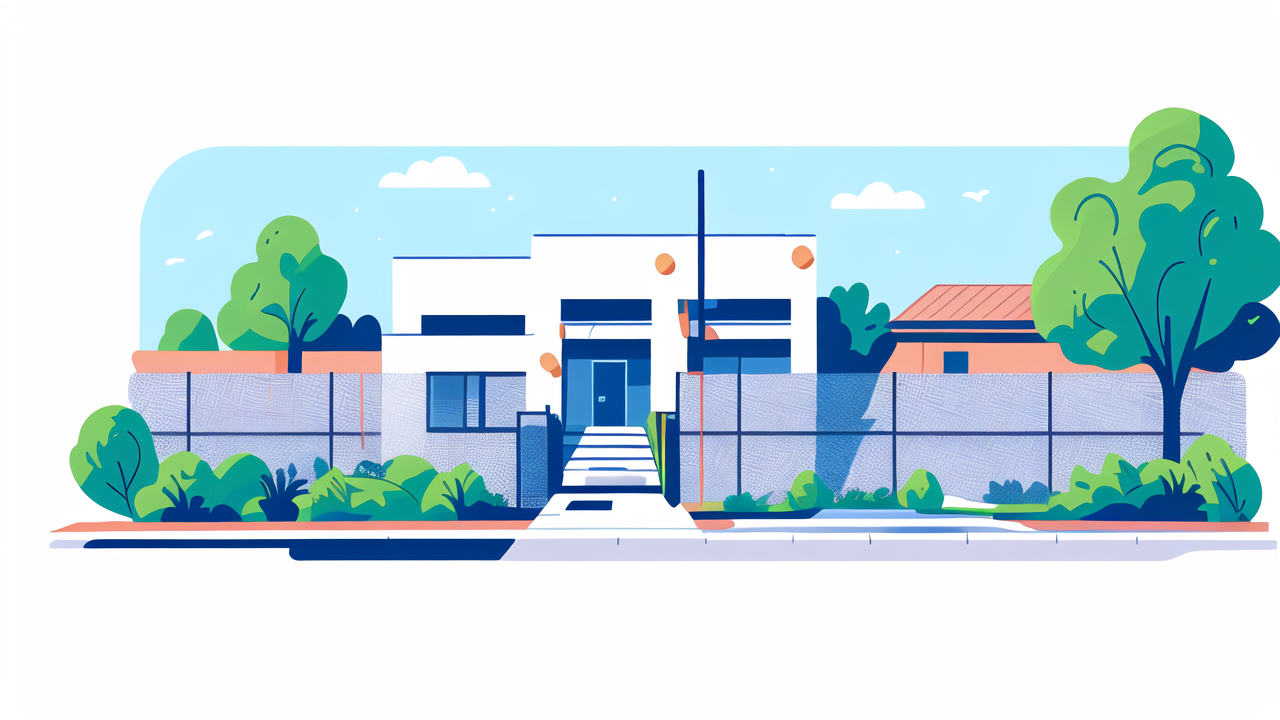Introduction to Composite Fencing
Understanding Composite Materials
Composite fencing is a modern solution for property boundaries. It's made from a mix of wood fibers and plastic. This blend creates a strong, durable material that looks like wood. The wood fibers give it a natural look. The plastic adds strength and protection. Composite materials resist rot, insects, and weather damage. They don't splinter or warp like wood can. This makes them safer and more reliable. Composite fences come in many colors and textures. You can find options that look like different types of wood. Some even have wood grain patterns. These materials are often made from recycled plastics. This makes them an eco-friendly choice for your home.

Advantages of Composite Fences in the US
Composite fences offer many benefits for US homeowners. They last longer than traditional wood fences. This means less frequent replacements. Composite fences don't need painting or staining. This saves time and money on upkeep. They resist fading from sun exposure. This is great for sunny states like California or Florida. Composite fences stand up well to extreme weather. They won't rot in rainy areas or crack in cold climates. These fences are also fire-resistant. This is important in wildfire-prone regions. Composite fences add value to your property. They look neat and tidy for years with little effort. Many homebuyers prefer low-maintenance options like composite fencing.
The Ultimate Guide to Selecting an 8ft Composite Fence
Evaluating Durability and Longevity
When choosing an 8ft composite fence, durability is key. Look for fences with strong UV protection. This prevents fading and color loss over time. Check the warranty offered by the manufacturer. A longer warranty often means a better product. Consider how the fence handles moisture. Good composite fences won't swell or shrink with humidity changes. Think about the fence's strength against impacts. This matters in areas with high winds or heavy snowfall. Read customer reviews about long-term performance. Real-world experiences can tell you a lot. Ask about the expected lifespan of the fence. Quality composite fences can last 20 years or more. Compare this to wood fences, which may need replacement sooner.

Assessing Aesthetic Appeal
The look of your fence is important for your home's appearance. Composite fences come in many styles and colors. Choose a design that matches your house and neighborhood. Some fences have a wood-like texture. Others have a more modern, smooth finish. Think about how the fence will look as it ages. Good composites keep their color for many years. Look at fence samples in different lights. The color can look different in sunlight versus shade. Consider how the fence color will affect your yard's feel. Lighter colors can make a space feel bigger. Darker colors can create a cozy, private atmosphere. Some brands offer two-tone options for added style. Remember, the fence is a big part of your home's curb appeal.
Considering Installation and Maintenance Costs
When planning your fence, think about all the costs involved. Get quotes from several installers. Compare their prices and what they include. Ask about the cost of materials from different brands. Sometimes, paying more upfront can save money later. Check if you need any permits for your fence. This can add to the overall cost. Some composite fence systems are easier to install. This can lower labor costs. If you're handy, you might even install it yourself. For maintenance, composite fences are cost-effective. They don't need regular painting or sealing. This saves money on supplies and labor over time. Consider how often you'll need to clean the fence. Some types are easier to keep clean than others. Factor in any special cleaners you might need. Overall, composite fences often cost less in the long run.
Implementing Your 8ft Composite Fence Strategy
Planning for Installation and Landscaping
Before installing your fence, plan carefully. Check your property lines to avoid disputes. Mark where underground utilities are located. This prevents damage during installation. Decide where you want gates and access points. Think about how the fence will affect your yard's drainage. Plan for proper grading to avoid water issues. Consider how the fence will look with your current landscaping. You may need to move or trim some plants. Think about future landscaping plans too. Leave room for new garden beds or trees if you want them. Consider how the fence will affect sunlight in your yard. This can impact where plants grow best. Plan for any lighting you want to add near the fence. Good planning ensures your fence looks great and functions well.

Best Practices for Maintenance and Upkeep
Composite fences are low-maintenance, but some care helps them last longer. Clean your fence regularly with mild soap and water. This keeps it looking new. Avoid using harsh chemicals or pressure washers. These can damage the fence surface. Remove any stains quickly to prevent setting. Use cleaners approved by the fence manufacturer for tough spots. Check your fence yearly for any damage or loose parts. Tighten any loose screws or brackets you find. Keep plants trimmed back from the fence. This prevents moisture buildup and potential damage. Clear away leaves and debris that collect along the fence. This helps prevent staining and mold growth. Touch up any scratches with manufacturer-approved products. With these simple steps, your fence will stay beautiful for years.
Legal and Safety Considerations in the United States
Before installing your fence, check local laws and HOA rules. Many areas have height limits for fences. Some require permits before you can build. Make sure your fence doesn't block views at street corners. This is important for traffic safety. Talk to your neighbors about your fence plans. Sometimes, you might share costs for property line fences. Ensure your fence doesn't interfere with utility access. Follow all safety guidelines during installation. Use proper tools and wear protective gear. If hiring pros, check their licenses and insurance. Make sure they follow all local building codes. Consider the impact of your fence on local wildlife. Some areas have rules to protect animal habitats. By following these rules, you'll avoid fines and keep everyone safe.
